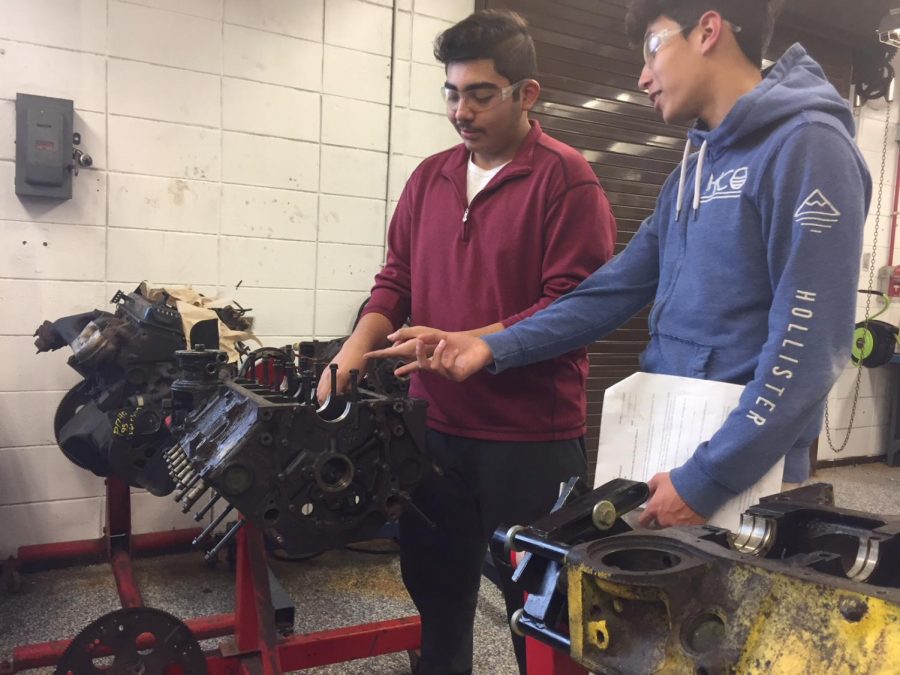Browsing classes? Check the autos shop
We’ve all gotten the emails: the nagging appointment reminders and the crushing weight of the pressure of choosing next year’s classes it entails. Hard to imagine it was just three months ago when we were all walking through the doors, ready to kick off the new year.
Classes can be stressful, but choosing them should not be. Courses such as Small Engines and Autos often get lost in the shuffle while meeting requirements to graduate. And, for kids who aren’t naturally mechanically inclined, taking a class on the machines they use everyday can be a daunting task.
But taking Autos and Small Engines isn’t all about telling the difference between a boxer or flat engine. For every student who plans to pursue a career in autos or mechanics, there’s another student who has little to no experience prior to taking the class.
“I like hands-on work, it seemed fun, so I sorta threw myself into it,” senior Esveidy Gamboa said.
Regardless of talent or prior knowledge, something as simple as knowing the general anatomy of a car could be the difference between sinking in hundreds of dollars for fixing your car or taking care of it yourself.
“It’s about being self-reliant,” senior Vince Masterson said. “Knowing one thing you use everyday is important.”
After completing Small Engines and moving on towards Autos I, students can find themselves in the school garage with hands-on class work. Among student, family, or faculty cars, Autos students work on restoration projects as well as prepare for for the annual Spring Car Show.
Technology will always change and advance, but for the time being, cars are here to stay. Regardless of what career or path you take, chances are you’ll be driving one that will need some work one day. Why shouldn’t you be the one to fix it?

